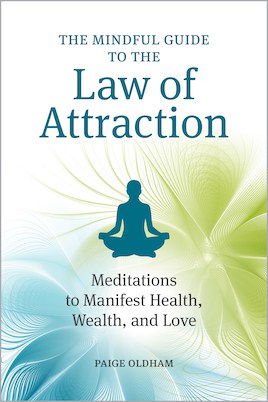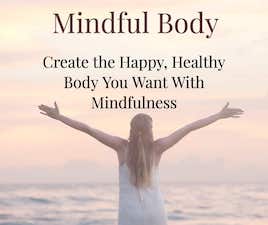You’re angry because he forgot your anniversary – again. You resent that she spends more time with her friends than with you. There your parents go again – playing favorites with your younger brother.
These all boil down to resentment. You resent the other person for doing something that irks you.
You set up expectations for other person and expect him or her to live by them. But they don’t. And now you’re pissed.
It’s not that these are unrealistic expectations, but they’re your expectations. Maybe you let the other person know about them or, more likely, you didn’t because you think that “everybody” would act the way you expect. But everyone sees the world a little differently and makes up their own stories about whatever is happening based on their own history, personality and experiences.
You resent that they’re disrespecting, not trusting or ignoring you. You feel “right” about being mad at them because they “wronged” you in some way. You reinforce your negative beliefs about them by subconsciously searching for ways to keep proving yourself right. “There he/she goes again!” and the resentment grows.
“Living with resentment is like taking poison and expecting the other person to get sick.”
Resentment is a choice. You’re choosing not to forgive the other person. You’re choosing not to resolve the issue. You’re choosing being right over being happy.
Holding onto the resentment feels like ammunition for “one day” getting even or getting ahead. It gives you a victim story to tell others so they can feel sorry for you. Unfortunately, all this “holding on” does is push you further from your true feelings about the situation, limiting your ability to heal.
The hurt, rejection or abandonment festers inside you, creating a cancer that grows and inhibits your ability to live joyfully.
The Way Out
In order to change the situation, you have to want to change yourself. You have to value your own health and happiness over a perceived vengeance on the other person. The other person probably doesn’t even realize you feel this way about them.
Healing yourself has nothing to do with the other person. They’re going to keep doing whatever it is they’re doing that makes you so mad. You could explain that you feel upset when they do whatever it is that upsets you. But it’s their choice to change. You can’t control them.
Realize that your thoughts and feelings about this person also cloud your ability to have great relationships with others. In the process of making up negative stories about the other person, you’re also telling yourself negative stories about yourself.
If he always forgets your anniversary, if your partner doesn’t spend enough time with you, if your parents play favorites; then you must not be an important enough person for someone else to care about. You bring that belief into your other relationships and subconsciously look for more evidence to prove that your belief about yourself is “right.” Which breeds more resentment about other people.
If you can choose your own happiness over being right, there’s a way out.
Simple Steps
Forgive
The most important step is to forgive the other person. As long as you hold onto being right and proving the other person wrong, nothing can change.
Forgiveness is only for you. Don’t tell the other person you’re forgiving them. It will only make things worse.
Release yourself from your self-imposed shackles. Release your negative thoughts and feelings about the other person.
Accept
Accept that the other person is the way they are and won’t change. Given this, is the situation something you can change your thoughts about and live with? Or is it something you need to distance yourself from?
Can you change your expectations of the other person? If, after you look at the bigger picture, you realize that your partner forgets all kinds of things (including your anniversary), can you accept that’s just the way he is?
Empathize
Put yourself in the other person’s shoes. Look at the current situation through their eyes – and hearts. What if you had grown up with their parents in the environment they did? What kinds of beliefs about yourself and others would you have developed? And how would those beliefs contribute to their current actions?
I’ve found that this exercise quickly turns my anger toward another person into compassion. Here’s an example: The bully who inflicts his will on others in forceful ways grew up with an overbearing mother and silent father. Neither parent gave him the love he so desperately sought as a child. In attempts to gain the love and attention he needed, he became a bully. His parents sent him to military school to “get him straight.” This only made the issue worse since he was further removed from his parents. And now, as an adult, he’s still a bully, still using verbal and emotional abuse to gain attention. Still putting others down so he can feel better about himself. And he has no idea that he does it.
Now, when I interact with this person and other bullies like him, I don’t get angry. The resentment I used to hold has melted. Instead, I see a sad little boy who’s not feeling loved or accepted by his parents. I feel compassion for him. This changes how I interact with him. And it changes the way he treats me. I’m not the victim of a bully.
Appreciate
When you can start to empathize with the other person, or at least begin to understand their perspective, think about what you appreciate about the other person.
Things weren’t always bad. There are reasons you chose your partner. What are they?
While they may not be living up to your expectations in one area, in what other areas do they do a better job?
Gratitude
Write down ten reasons you’re grateful for the other person. While this may be challenging at first, it will shift you into a more positive mindset.
What you focus on grows. Focus on the positives, the things you appreciate. Make this a regular practice. The more you practice, your negative beliefs will begin to change to more positive ones.
And you will be happier.
You hold the key to your cure. It’s up to you to choose to free yourself of the cancer of resentment and open your heart to the happiness you’re seeking.
Visit my Recommended Resources page where I post the latest list of books, programs, and products that I’ve found to be particularly helpful in growing your mindfulness and meditation practices.
Create the life you want: Combine the law of attraction with mindfulness
The law of attraction suggests that our positive or negative thoughts bring about positive or negative experiences. My latest book, The Mindful Guide to Law of Attraction, pairs that belief with the powerful practices of mindfulness. Through intentional breathing, writing, and engaging, you’ll hone a method for manifesting health, wealth, and love―the elements of happiness.
Let the law of attraction work for you by adopting its basic steps of identifying and visualizing the things you desire. Then use 45 practical meditation techniques included in the book to achieve awareness. By concentrating your positive energy on obtaining your wants, you’ll give yourself permission to receive them.
To your happiness! ~Paige

You can find this book at Amazon, Barnes & Noble, Books-A-Million, and Indigo.






 The Mindful Living Guide
The Mindful Living Guide




Great article. To add – I believe an important part of the forgiveness step is to thoroughly and honestly look at your actions as well and if there is anything at all , even if its 10% at fault, make amends for your part only…ie, keep your side of the street clean. Its important to not call the other person out , ie that negates the whole intent. Nine times out of ten, the unexpected ends up happening and the other person also apologizes or I find that I was wrong about what they were thinking and they had no idea about it…I tend to magnify and turn things into what they are not. That’s why a honest self appraisal is so important , because really all I have the power to change is myself
Great insights Timothy! You’re so right on so many levels.
Iam resentful torge my partner cuz when we have a fight or a petty disagreement he takes the argument to below the belt remarks. Most of them are things I have shared with him that have hurt me in the last. I want to love and adore my partner but it’s hard when he gets angry an says some really hurtful things. I don’t understand why an how a person who you are vulnable with can just say anything an everything possible to hurt me. I have been abused my whole life an iam sure he has to. But when I say you are perfect in every way but when you are trying to hurt me cuz you are mad I can’t take your apology sincere when the nxt day ther being said again. I try to explain I can’t showers you with love an affection when I feel like the person I need to love adore an b proud of me is constantly doubting me an making me lower about myslef. Why do people hurt the ones they love an then treat them as if they can’t let last go when it’s not only n the past it’s n the present as well. I try to get myslef to block the hurtful things out but when they are just cruel I can’t help but pitva guard up an or not say anything but it’s a cycle that won’t stop an I just need the harsh word to stop. Iam depressed an hard on my self as it is an ashamed of my anxiety disorder but after being abused I take things said to me to heart an I feel like I have loyalty faith n trust n eveyone I love but they don’t have the same back with me an it hurts an iam starting to cut myslef an have dark thoughts about wanting to die an them feel the pain of whatbitbis like with me gone. I’ve talked about my anxiety an how it gets to a impulsive dangerous level cuz the person is acting like a bully an when I say please just stop my anxiety can’t handle rid an iam having bad thoughts an all I want is supper encouragement trust faith an to know it’s not just me having everyone else back they have my back. I’m over defending myslef to someone who is constantly doubting me an demanding I put the first but I’m also being last. I want the kind all understanding safe zone that I had. I love this person an we have this bond an connection wher it can b absolutely magical an then in a snap of a finger to wher iam lockers away n the bathroom having a full mown onavk attack an instead of acknowledgeing the harm he is creating inside me it’s hard for me to love an laugh an b hoppy when he will treat anyone else with compassion. I don’t want a pitty party but that I am broken at this moment but a lil bit of faith trust love n support. I want my relationship to work it’s just him me an my 2 sons who are 22&17 iam nktbdiwning him about his anger impulses iam simply saying please stop your hurting me an making me feel my thought with doubt an my suicide thoughts are real an I afraid one of these times he isn’t gona back off an I’m am gona hurt my self out of fear an impulse and needing to deflect the right chest an panavkim an being abandomedbcuz thatbis an issue of mine. He is all I have an for one after 2 marriages over half my life iam truly not love n a way I’ve been in my life ever. My soul n Heath crave his an my kids acceptance an encouragement an compassion that iam extra sensitive due to abuse an for him to say am do things to hurt me have. Me n a dark sad depression resented state of mind an what if what day inant comtril it a I do something bad. Iam hard on myself I used to b vibrant not afraid to do for myself an my kids father killed himself. It’s not a joke. But if anyone can please tell me how I can handle this an get help so we can get back to the bright sunny happy moments. Iam the only one who stands up for myskefba the ones who love me know my mother n step father.n brother treat me an act as if iam a horrible person an eveyone can b n a mad mood nOw n then but that when your loved ones see an know you only need a lip bit of kind an softness to calm it down. Iam a caring loving person I show my love by loyalty cooking n cleaning an taking care of eveyone else but would it kill someone to notice you need a lip lift an if they give you that life then. You will return the favor an show them love n affection it is hard when your not that way anyways but is it asking to much to just change the way he handles the getting so mad over nothing an the. You dare say something innocent an then the hate words star flowing but how’s come you are of with saying this kinda of things but if you would trust me an out me above all an adore me an I will adore him. Men are over things faster. But is it asking tomuch to not b told to shut the fick up an to fucknoff boho feel sorry for me an that’s not what I want just give me back that your beautiful N you can do anything an your the glue to the family to basically him saying auckmean things he don’t remember an if he has issues which this is. Roller coaster. I’m trying to fight this eoresiim but whe eveyone counts is for clean clothes food an whatever else they need iam the bill planner payer I dont get no more god job or confidence that iam needing. MYne that is a threat for me to come in I would do anything for my man an my kids but they don’t ever at as if iam a good o an thers no pride n love. Gonagter what you want N I did N he saved my life an made y heart beat again an now wer back forth N an argument can go real bad real quick. I can’t live n trust on someone after being devasted by your word an you saying imkying about whatbtoubsaid an me knowinghe isn’t. I need someone to help me over come this after math of abuse an to help me learn how to talk to people. But the more I say the worse I make it when I have not done nothing wrong period wtbalone to deserve to b talks to thatbway by the man who wa any hero’s. He has made me pit him above eveyone an he will get a new friend an thatbowrson an anyone lelse who is up to no good N he will put them worrhkess mouchimg losers above me.. An when they cross hi the he will say you wanna right ima sorry but it keeps happening. An he try’s to turn it all on me. How can I get him to either show me he is for me or he is never gona see an understand cuz it’s as he is ouisbing me for what his x did to him. But iam honest n loyal an him an y boys are a I got. I 38 can’t wirk no job been n 2 divorces an I always got screwed but I’m to old to keep living this way if I don’t find a way to feel good about myslef an take care of me the iam afardid is gona continue to b so scared n needy I will say ah he will push it to arvine day an I will take my life just to stop the horrible anxiety I get. I just want to b talked to kind an loving a gentle get n a disagreement you sayba lol but N then you leave it b for that person to rhinkmon IT an your still taking low jabs It’s hard to hear them over the hurtful comments. But if a person can look at you an tell you that you wasn’t abused itsall me I’m playing the poor me card an you proceed to cry. They actually tell you to knock that crying shit out it’s getying on your nerves so then you want to die an you made fun of for feeling thiose thoughts cuz you have said this for 3 yrs so your not gona do anything. An that coming from this amazing sweet kind loving man while he is laughing T you it almost makes me want to do it an let hi see what pain feel like cuz I’m taking about it to get help not attention I need help or a hospitol smithing an he defwtmy needs help for bilpilor disorder an iam severly depressd N extreme anxiety. An iam scared all over from cut marks idk what to do I know I’m nkt perfect but I stay home an I ale sure we are doin god here pay bills grocerys ther is a lot to staying at home an have no friends no famiy no wher to go an turn to go help. The social anxiety keeps me from goin n doin anything other then I have to an that’s a cpl days a wk but you doin something a your a Debbie downer ebryday well I’m sorry you fought with me till late at night an then again at 6 am an while working txt me all day. Prince Charming to the devil. Please someone help me help us I need help ASAP cuz my urges to cut myself an I will do whatever to get him to stop following around the house disrespectful an the pain n my chest an anxiousness an almost like he wants to see how far alsktvkike he is wanting me to over dose an go away firsbrbor n a hospitol. I was n one for 2 days liem4 yrs so an they didn’t hel me a bit
Frankie,
Yes, professional help would definitely benefit you (and likely not at a hospital). I work for a community mental health center that offers crisis services and a variety of other support to help people like you. I would recommend that you look up something similar in your area. Sometimes they can make house calls. Many utilize peers who are people who have recovered from what you’re dealing with and help others recover. Ask about “mental health center,” “behavioral health center” or “department of social services.” There’s help out there. You have to take the steps to find it. You’re strong. You can do it.
Do you think that people who channel their anger can use it as fuel to work harder and be more successful than others less angry? I’m curious and personally don’t know the answer.
There’s definitely no “right” answer to that one. I know of plenty of artists who use their anger and depression to enhance their art but it cuts their lives short in the process.
I’ve used anger/frustration to move things forward because I’m so tired of the way things are, but it takes a ton of energy and isn’t sustainable.
I, personally, wouldn’t want to rely on a negative emotion to bring “success” into my life. In the end it would be hard to feel successful, however you want to define “success.”
Hi Paige. Thank you for sharing this post. It’s really tough to become happy when you are angry. Been there and done that. lol. Every time I am angry I use to listen to a custom subliminal audio to control my emotion. I hope you can try that. Anyway, Thank you again paige.
Sounds like a great tool Yogi! I’ve used subliminal audios in the past too. Mindfulness, in its many practices, can help us identify our emotion and move it along instead of always being in a reactionary mode.
My partner has struggled a lot with anger in the past and has found that mindfulness, forgiveness and gratitude helped him so much.
Thank you for a great article.
Thank you for sharing that Kylie! It’s incredible how powerful these practices can be.
Thanks for all you resource references. Resentment kills and causes illness so often. Being love means we love ourselves first and then step into a powerful place where we share this love with others and uplift the world. xxoo
Couldn’t have said it better myself Suzie. Thanks so much!
Hi Paige,
It’s so hard for someone else to live up to the expectations you set in your head for them, isn’t it? It’s funny how we expect this from them and get to pissed when they don’t live up to it. But when you think about it as you said, you can really see the disconnect.
Resentment can be so bad and tie you into a horrible cycle because you’re expecting the other person to redeem themselves but instead they dig a deeper hole, in your eyes.
I like your process for turning things around. It isn’t easy to change but it’ll be easier later.
~Lea
Thanks so much Lea! Yes, change isn’t always easy but it’s so worth it.
It’s funny how we expect others to live up to our expectations while we might feel “put upon” if someone else made the same expectations of us openly. Seeing things from the other person’s perspective can diffuse so many potentially negative situations.
This is so hard, Paige, but so worth it. I love what you say about valuing your own health and happiness over your perceived vengeance on the other person. It’s not even real vengeance! 🙂 But it’s true. You have to get to the point that you care about what that anger does to you MORE than you care about being angry. . .
Holding onto all that anger and vengeance is simply a way of trying to prove yourself “right.” To what end? Is it better to be right or happy?
Thanks so much Jessica!